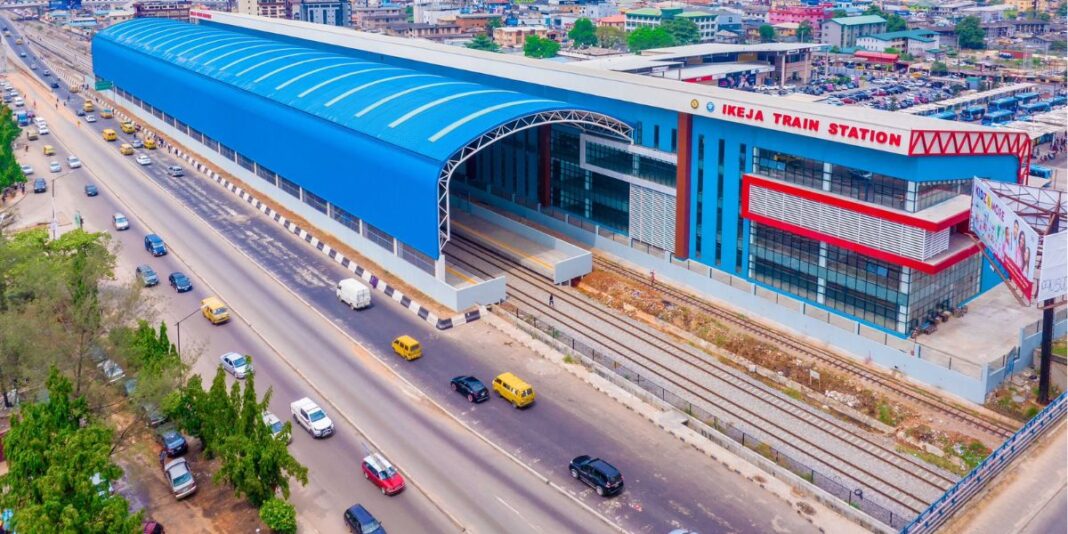Lagos, Nigeria – A growing wave of discontent is rising from various indigenous Yoruba communities across Lagos State. From Oshodi to Isolo, and from FESTAC to parts of Amuwo-Odofin, traditional landowners and cultural custodians are expressing deep concern over what they describe as systemic marginalization in their own homeland.
At the heart of the tension is the rapid demographic and commercial domination of certain areas by non-indigenous populations, particularly of Igbo extraction, whose entrepreneurial drive and aggressive expansion in real estate, commerce, and port-related activities are now seen by some as economically and socially oppressive to the Yoruba host communities.
A City at the Crossroads
Lagos, Nigeria’s commercial capital and most cosmopolitan city, has always stood as a symbol of pan-Nigerian unity and opportunity. But that openness, some argue, is now being exploited in a way that undermines indigenous rights and community survival.
“It is not xenophobia to ask for protection. Lagos belongs to all, but first, to the Yoruba. There must be a balance,” says Chief Adebayo Onasanya, a community leader in Isolo.


Residents recount instances where Yoruba landlords were reportedly sidelined by new property developers—allegedly of Igbo origin—who rent at exorbitant rates to indigenes but offer heavy discounts or preferential treatment to their own kinsmen. In other cases, allegations of cultural imposition and economic exclusion in sectors such as clearing and forwarding, particularly at Tin Can and Apapa Ports, have sparked deep frustration.
Some Yoruba youths have taken to platforms like TikTok and Instagram, pleading with President Bola Tinubu and Governor Babajide Sanwo-Olu to intervene before the matter escalates into civil unrest.
Historical and Legal Context: Who Owns Lagos?
Historically, Lagos was founded by the Aworis and developed by the Yoruba people, long before colonial and post-independence waves of migration. The Oba of Lagos remains the traditional custodian of the land, and indigenous landowners across Eko, Ikeja, and Badagry divisions hold legal and ancestral titles.
While the 1999 Constitution allows freedom of movement and economic participation, there is no provision that allows the erasure of indigenous identity or monopolization by migrant groups.
In the words of Obafemi Awolowo, “The best way to preserve national unity is to protect local autonomy.”
International Precedents: How Other Nations Protect Indigenous Rights
Several global examples offer insight into how host communities can be legally and economically protected without violating the rights of others:
Dubai, UAE: Non-citizens may rent, invest, and build, but land ownership is restricted to citizens or offered on leasehold (usually 20-99 years). Foreigners are not allowed to interfere with local customs or monopolize industries deemed sensitive.
Malaysia’s Bumiputera Policy: Protects indigenous Malays by reserving a percentage of housing, business licenses, and employment for natives. While controversial, it is credited with preserving balance in a multiracial state.


Botswana: Recognizes tribal land ownership and requires foreign investors or migrants to operate under customary and statutory approval processes that respect the host culture.
New Zealand: Indigenous Maori lands cannot be alienated without tribal consensus. Non-Maori can lease but cannot own ancestral lands.
Recommendations: Towards Equitable Coexistence
To prevent escalating communal tensions, and in line with best global practices, the Lagos State Government and National Assembly must consider immediate interventions:
A. Establish a Lagos Indigenous Protection Commission (LIPC)
To monitor cultural, economic, and demographic shifts.
To ensure equitable access for indigenes to housing, trade licenses, and employment.
B. Legislate Lease-Only Land Access for Non-Indigenes
C. Restrict permanent land ownership in core traditional areas to Yoruba indigenes.
D. Allow long-term leases (up to 10 years) for non-indigenes.
E. Introduce Indigenous Economic Inclusion Quotas
In clearing and forwarding, transport unions, housing development, and state contracting.
F. Civic Reorientation Programs
Promote mutual respect, cultural education, and peaceful coexistence in schools, markets, and social spaces.
G. Digital Registry of Land Ownership
To track and protect ancestral lands and prevent fraudulent sales or monopolization.

Conclusion: Unity Must Not Come at the Cost of Identity
Lagos must remain open, but never defenseless. The Yoruba identity is not negotiable. The rising concern across indigenous communities should not be dismissed as ethnic bigotry—it is a plea for justice, fairness, and cultural preservation.
“We welcome every Nigerian to live and trade in Lagos, but we must never be made strangers in our own land,” said Alhaja Modinat Akinsanya, a property owner in FESTAC.
Nigeria must learn to balance national unity with indigenous protection, or risk social fragmentation. The time to act is now.
Headlinenews.news Special Report.

1. “Strangers in Their Own Land: The Yoruba Fight for Indigenous Rights in Lagos” – a good article, government and house of assembly must take necessary steps in line with these suggestions. Lagos Chief.
2. “Land, Law, and Loyalty: The Rising Call for Indigenous Protection in Lagos” – Elder Statesman, Former Leader.
3. “Ownership or Occupation? The Battle for Space and Identity in Lagos State” – We should act now. It is unacceptable. Member House of Assembly.
4. “When the Hosts Become Tenants: The Yoruba Cry for Justice in Lagos”. This will never be tolerated anywhere else in Nigeria. – Distinguished Senator.
5. “Protect the Indigenes: A Call for Balanced Coexistence in Lagos” – Traditional Ruler, Lagos.
6. “Cosmopolitanism with Consequences: Yoruba Voices in a Changing Lagos” – Former Governor.
7. “Who Owns Lagos? Revisiting Ancestry, Equity, and Economic Power”- This is the question and it appears the government needs to ensure the non- indigenes understand this. – Legal Luminary.
8. “From Eko to Exile: When Cultural Openness Becomes Displacement” – Dr. Tunde Adeyemi.
9. “Land, Identity, and the Law: Why Lagos Must Protect Its Founding People.” A very interesting report.
– Prof Oluwole.



